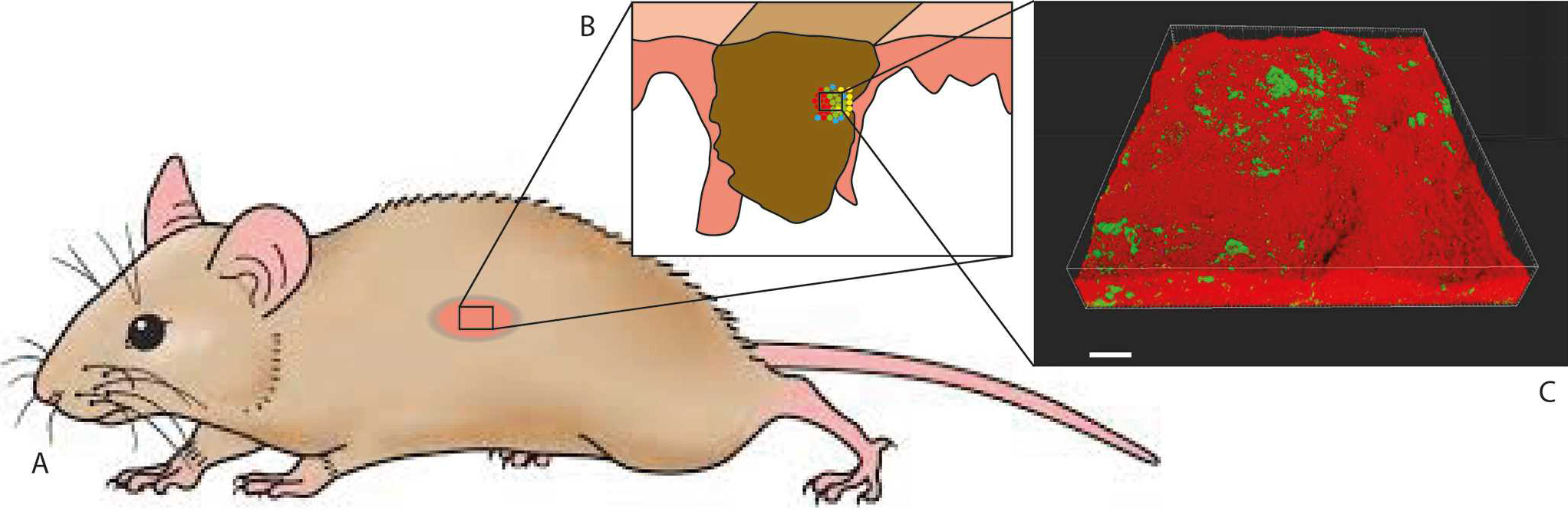SHARE - SHared Antibiotic REsistance: compounding immedicable infections
This research project aims at elucidating the underlying mechanisms and impact of SHared Antibiotic REsistance (SHARE), which will lead to more efficient and targeted treatment strategies for bacterial infections.

This project will investigate a novel area to combat antimicrobial resistance. It will pinpoint the mechanisms that either disrupt or stabilize the altruistic sharing of antibiotic resistance, and discover whether horizontal gene transfer and biofilm formation can make production of SHARE, such as penicillin resistance, an evolutionary strategy.
SHARE - SHared Antibiotic REsistance: compounding immedicable infections
Background a nd aim
nd aim
The World Health Organization concludes that the increasing emergence of antibiotic resistance among infectious bacteria is causing a global health crisis. SHARE occurs when antibiotic resistant bacteria remove antibiotic compounds from their local environment, and thus prevent the killing of antibiotic-susceptible bacteria. An overarching mechanism facilitating antibiotic resistance of pathogens that has been critically overlooked. SHARE has so far attained very little attention, even though it holds the potential for better utilization of some of the most important antibiotics used in clinics on a daily basis, such as penicillin and cephalosporin.
This project will investigate a novel area to combat antimicrobial resistance. It will pinpoint the mechanisms that either disrupt or stabilize the altruistic sharing of antibiotic resistance, and discover whether horizontal gene transfer and biofilm formation can make production of SHARE, such as penicillin resistance, an evolutionary strategy.
Gains and perspectives
Studying SHARE is a case of high relevance for human health as antibiotic resistance among bacteria is critically high and still rising. This project will reveal the evolutionary mechanisms and stability of SHARE, provide an estimate of SHARE's clinical significance, and indicate novel clinical treatment or hospital practices that can reduce the impact of shared antibacterial resistance.
Professor Søren Johannes Sørensen
Section of Microbiology, UCPH
Associate professor Mette Burmølle
Section of Microbiology, UCPH
Professor Niels Frimodt-Møller
Department of Clinical Microbiology, RH
Associate professor Kendra P. Rumbaugh
The Rumbaugh Lab at the Department of Surgery
Texas Tech University
Professor Karen Angeliki Krogfelt
Statens Serum Institut
 TT Assistant professor Jonas Stenløkke Madsen
TT Assistant professor Jonas Stenløkke Madsen
My research focuses on how bacteria interact, the molecular biology behind interactions, and how these social interactions evolve. Basically, the molecular biology and evolution of conflict, manipulation, sharing, and dependencies among bacteria.
I am especially interested in the role horizontal gene transfer – gene-sharing between bacteria – has in bacterial social evolution. The critical increase of antibiotic resistance among infectious bacteria, for example, is a striking and scary outcome of horizontal gene transfer. Sharing of genes is typically facilitated by mobile genetic elements and I studying how such elements interact with the rest of the host genome, in addition to how such interactions effect the social behavior of the host bacterium.
In order to experimentally address the hypothesis driven research briefly described above, an important part of my work is to develop molecular tools and engineer bacteria. The experimental research conducted by my group utilizes genome engineering (e.g. by CRISPR/Cas), synthetic biology, and fluorescence reporter gene technologies, FACS, CLSM, high-throughput sequencing, transcriptomics, and classical microbiology methodologies. We also use in vivo animal and plant models that are made available by collaborators with proper facilities.
Section of Microbiology

Funded by:
Project title: SHARE - SHared Antibiotic REsistance: compounding immedicable infections.
Project period: 01.09.2018 - 31.08.2021
Contact
 TT Assistant professor
TT Assistant professor
Jonas S. Madsen
Universitetsparken 15
Building 1, 1st floor
DK-2100 Copenhagen
Email: JSMadsen@bio.ku.dk

